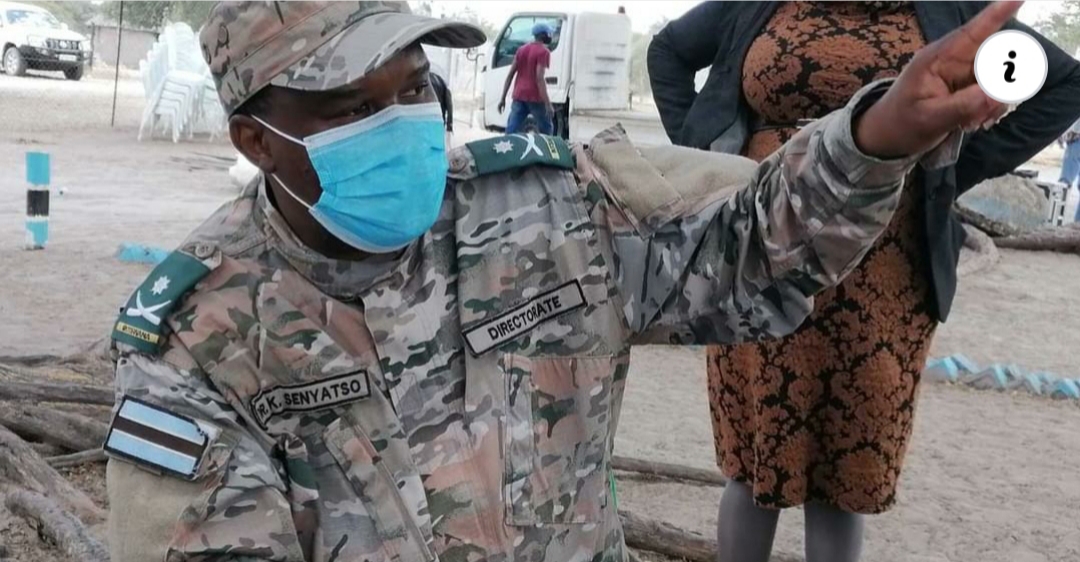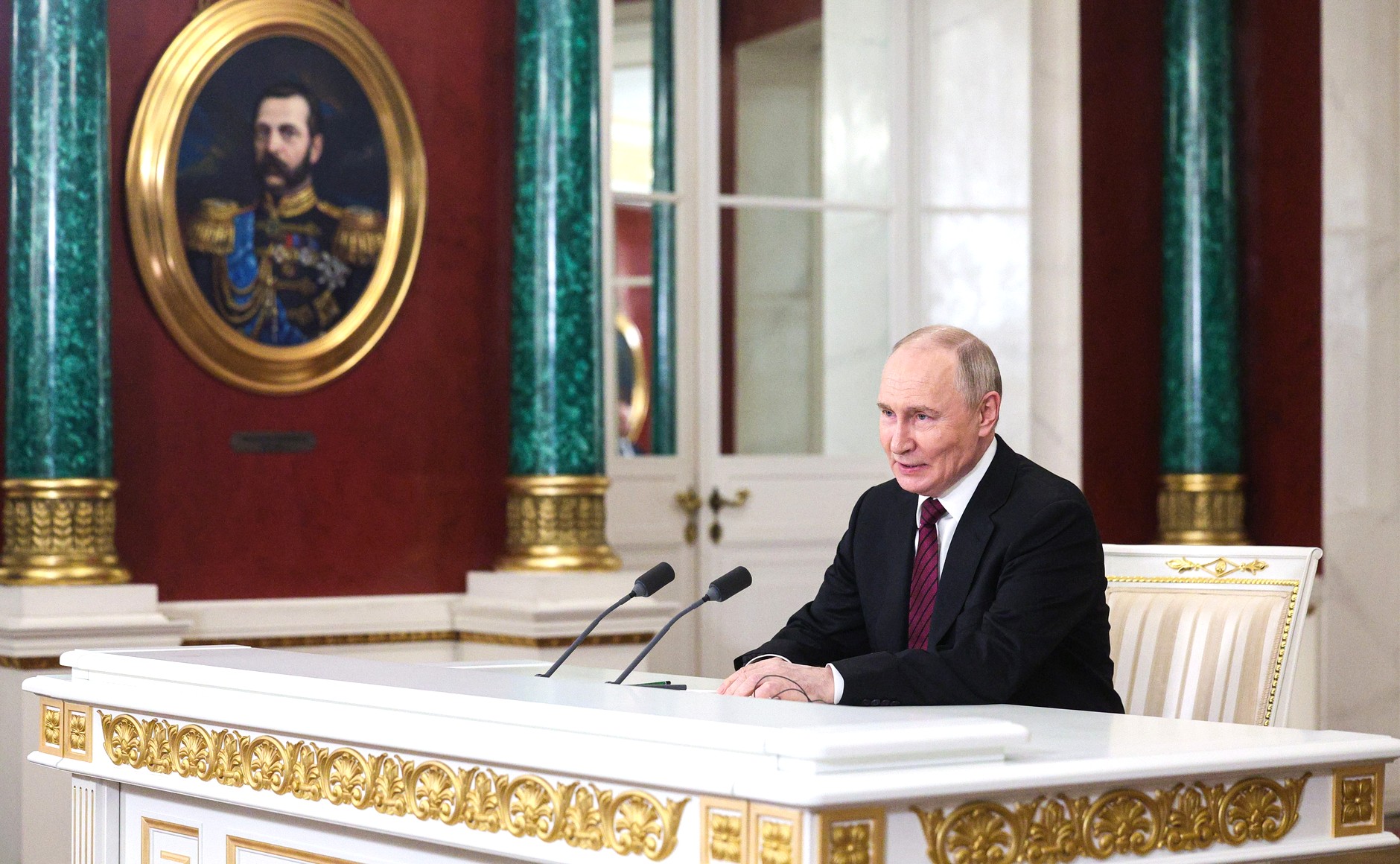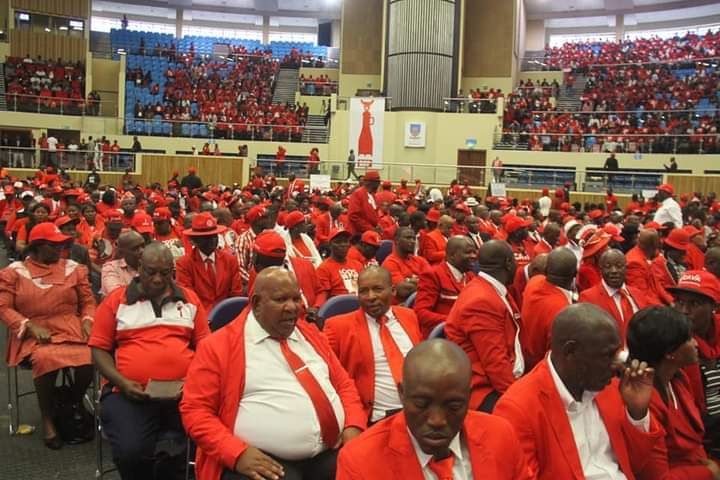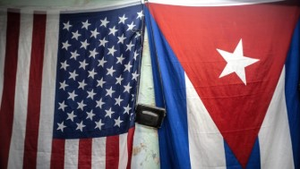
Dr. Kabelo Senyatso
The Pan Afrikanist Watchman
The Government of Botswana has taken a decision to move all rhinos from the Okavango Delta into sanctuaries.
According to the Director of the Department of Wildlife and National Parks in the Ministry of Environment, Natural Resources, and Tourism Dr. Kabelo J. Senyatso, the sanctuaries will allow for conservation and rapid propagation of the species under a secure and smaller area.

In a press statement he issued this week, Dr. Senyatso highlighted that over the next few years, the animals from the sanctuary will be used to re-populate other areas, including the Okavango Delta.
In fact, this form of conservation has a long history in Botswana. Giving a background on the use of wildlife translocations and sanctuaries to protect threatened species, including from poaching Dr. Senyatso explained that Botswana has been dealing with the challenges of rhino and elephant poaching for over 100 years.
He explained that rhinos are poached for their horns, while elephants are poached for their tusks, and these horns and tusks are typically illegally traded in Asia.
Dr. Senyatso revealed that rhinos became extinct in the wild in the then Bechuanaland Protectorate in the late 1800s. That is when the Government re-introduced 138 white rhinos into northern Botswana between 1967 and 1986.
These animals were distributed between three game reserves in northern Botswana. An aerial count shortly thereafter recorded a 20% decline from the expected population size. Another aerial count done in the early 1990s pointed out an 80% population decline with some carcasses observed on-site.
This decline was attributed to poaching.
The Director said that a decision was made in the early 1990s to relocate the remaining animals to a fenced sanctuary. This led to the establishment of Khama Rhino Sanctuary (KRS), and the few animals that could be recovered were moved there in 1993.
According to Dr. Senyatso, the KRS demonstrated the importance and success of managing small populations of endangered species under fenced conditions for the purpose of concentrating security efforts in small areas while providing an optimal environment for rapid population growth.
Fenced estates are important in maintaining stock where later, animals can be used to re-stock other areas once the species population increase.
While Botswana’s rhino population has remained small the elephant population is the largest in the world, estimated at over 160,000 elephants presently. While the general approaches for anti-poaching activities are applied to all wildlife, this main difference in elephant and rhino population sizes, and differences in the ecology of elephants and rhinos, means the same level of poaching will always have a variable impact on the two species.
Therefore, there will always be certain interventions unique to either of the species to mitigate the outcome. In this regard, while more elephants than rhinos have been poached since 2010, as illustrated by the table below, due to their large population, elephants will not be protected through the use of sanctuaries, while rhinos can be protected through this approach.
| Species | 2010 | 2011 | 2012 | 2013 | 2014 | 2015 | 2016 | 2017 | 2018 | 2019 | 2020 | total |
| Elephant | 14 | 8 | 21 | 22 | 42 | 37 | 36 | 76 | 57 | 87 | 20 | 420 |
| Rhino | 0 | 0 | 0 | 1 | 0 | 0 | 1 | 0 | 5 | 30 | 62 | 99 |
On the basis of the successes of rhino populations kept in sanctuaries, the Government took a decision in 2000 to re-introduce into the wild, black and white rhinos in northern Botswana, and by 2016 these animals had been released in the Okavango Delta.
Dr. Senyatso explained that following the surge in rhino poaching within the Okavango Delta a number of initiatives were implemented to address the problem. These included an increase in foot and aerial patrols, dehorning of rhinos, and removal of the critically endangered black rhinos to fenced areas.
He said that while these measures have worked to differing levels, flowing from the successes gained from using sanctuaries to protect the species, the Government has now taken a decision to move all rhinos from the Okavango Delta into sanctuaries.
He reiterated that the Government is committed to deploying resources towards anti-poaching activities as a means of ensuring that the country’s rich wildlife resources are not decimated by those with selfish ambitions.
Dr. Senyarso assured that the Government will maintain the anti-poaching efforts in northern Botswana to protect the country’s territory and its resources.
He concluded by appealing to the public to disregard some elements of society who are using the current translocation of rhinos for their “narrow selfish interests”, adding that many of these falsehoods conveniently ignore mentioning that the use of fenced areas followed by release into the wild has been used in Botswana since the 1990s as a means to improve anti-poaching efforts for rhinos.









